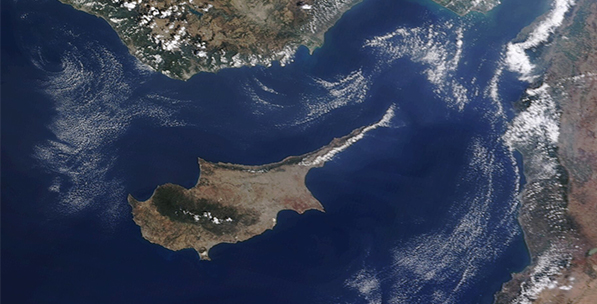A new stage has been reached today for the re-establishment of political union in Cyprus after nearly 50 years of division. The likelihood of a federal solution in the near future seems to be high with mutually positive attitudes of both sides towards settlement alongside mediation efforts of international actors.
The current situation is unfavorable for both parties on the island. Turkish Cypriots have suffered a lot from international isolation and their suffering will continue as the problem persists. The Turkish Republic of Northern Cyprus (TRNC) has not been recognized by any country except Turkey, and has survived to date with Turkish political and economic support. As a result, Turks on the island have been exposed to international sanctions as well as political, economic, and socio-cultural isolation for years. As a result, Turkish Cypriots have been more eager for a fair resolution and the reunification of the island since the beginning of the 2000s.
As for the Greek Cypriots, despite the international recognition as the legitimate representative of the island, they have no control over the north, yet the properties of many Greeks remain in the north, on the Turkish side. Furthermore, Turkey does not recognize the SCGA, to the disadvantage of Greek Cypriots. Establishing economic and trade relations with Turkey, whose foreign trade and investment figures have remarkably increased in recent years thanks to its political and economic stability, can definitely help the SCGA to overcome the current crisis. This is actually why the SCGA has been soliciting Turkey to open its ports to the Greek Cypriot vessels; yet Turkey refuses to do so as it does not accept the SCGA as a legitimate government.
Continuation of the Cyprus problem has been causing complications for Turkey as well. While Turkey has made considerable progress towards full membership in the European Union (EU), the dispute in Cyprus remains one of the biggest obstacles to Turkey’s EU bid. The accession of the SCGA, which Turkey refuses to recognize, to the EU in 2004 has complicated the situation even further. With Greek Cypriot membership, the normalization of relations between Turkey and the SCGA has virtually become an accession requirement for Turkey. The Cyprus question is thereby blocking Turkey's accession talks.
The discovery of hydrocarbon reserves in the Eastern Mediterranean has put Cyprus on the front burner in recent years. In the near future, Cyprus will not only be able to extract and market natural gas found in its territorial waters, but also turn into a corridor for the transportation of relatively vast resources in the territorial waters of the Levant. The strategic importance of Cyprus for Europe, which is in need of alternative energy sources, has increased accordingly. The continuation of the Cyprus dispute, however, limits the SCGA’s options for international cooperation on energy. Turkey does not approve of the SCGA being the sole decision-making body on the island when it comes to the use of resources belonging to the entire island and to the sharing of the energy revenues. The island's exclusive economic zone, the borders of which were determined by the SCGA without discussing with either Turkish Cypriots or Turkey, is also an issue of dispute. Normalization of relations will facilitate and expedite the steps to be taken in the energy field. The economic depression in the SCGA and the pressure of the international community for a settlement on the island positively affect the attitudes towards rec









